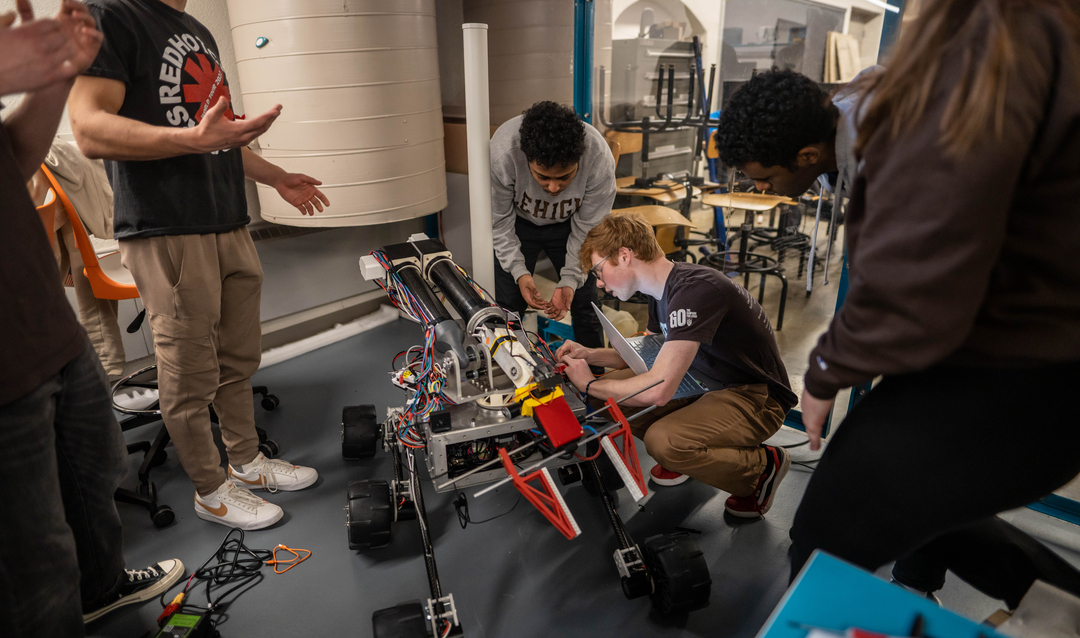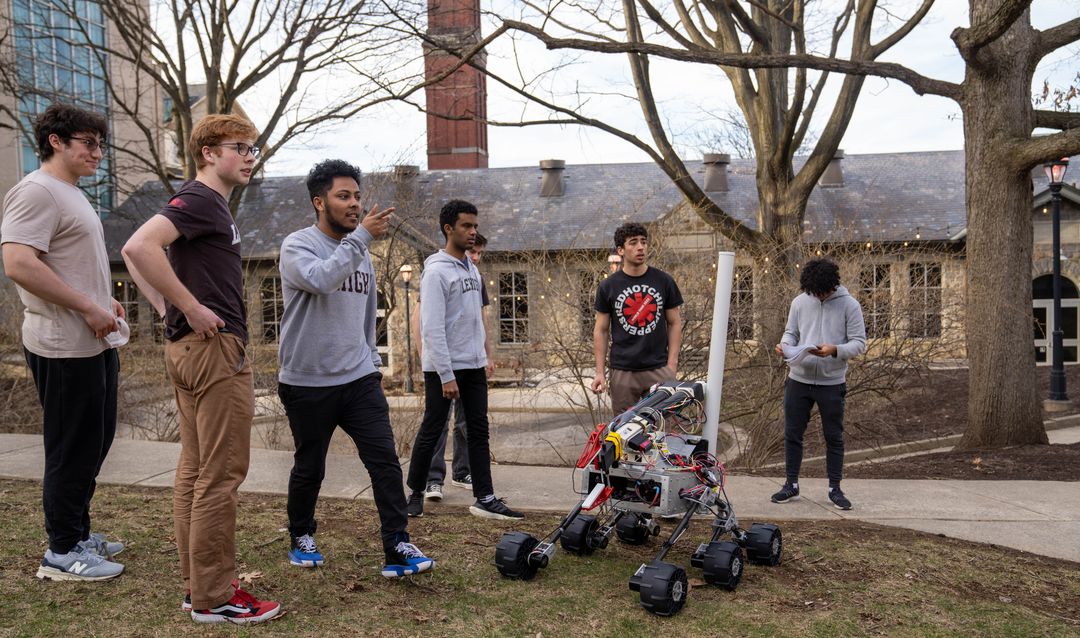The Lehigh University Space Initiative (LUSI) brings together a team of talented and dedicated students eager to make their mark on the vast frontier of space exploration.
The students’ commitment to advancing the field of space exploration while honing their STEM skills is exemplified by their focus on two major projects: NASA's CubeSat Launch Initiative and the University Rover Challenge.
Zemichael Gebeyehu '24, a mechanical engineering major with minors in aerospace engineering, electrical engineering and economics, is a founding member of LUSI. Having harbored a passion for all things space-related since childhood, Gebeyehu said he was thrilled to be able to chase his dream at Lehigh, and grateful for the support he and the club have received while working on their projects.
LUSI relies on the Wilbur Powerhouse as its primary workspace. According to Gebeyehu, nearly all club meetings and manufacturing processes were completed within the facility.
"We wouldn't have been able to integrate all the components seamlessly without the resources provided by Wilbur Powerhouse," Gebeyehu mentioned.
Brian Slocum, director of the Design Labs, believes LUSI exemplifies the immense value that having diverse "making resources" brings to Lehigh students.
“From utilizing the waterjet, laser cutters, CNC mill and vinyl cutter in Design Labs Makerspace, to leveraging several 3D printing technologies from the Design Labs Additive Lab, to utilizing the metal fabrication tools in the Design Labs Mountaintop Metalshop, to the PCB printer, electronics sensors, soldering tools, and circuit prototyping tools in the new Electronics Design Studio, this team has made use of nearly every resource we offer,” said Slocum.
The CubeSat Launch Initiative (CSLI) by NASA is a multi-year program designed to foster interest and innovation among students in the fields of science, technology, engineering and mathematics (STEM). A CubeSat, a compact satellite measuring around 10 cm by 10 cm by 10 cm and weighing less than 4.4 pounds, enables various investigative missions ranging from Earth's atmosphere studies to space weather analysis and radiation testing.
NASA's Launch Services Program (LSP) matches each selected CubeSat with a launch best suited to accomplish its mission objectives.
Over 20 members of the LUSI club, comprising a diverse mix of first-year students to seniors, have been working on their CubeSat project for more than a year, marking it as the most significant endeavor for the organization. The team plans to submit its first proposal to NASA in November 2023. If chosen, NASA would fund approximately $300,000 of the launch cost, allowing the team to further refine its CubeSat to meet the requirements of one of the available missions.
The other project, the University Rover Challenge (URC), is an annual event hosted by the Mars Society. The highly anticipated competition features teams showcasing their state-of-the-art Mars Rovers designed to tackle complex tasks.
LUSI members have actively participated in the contest and successfully cleared the preliminary design review stage. Due to the intense level of competition this year, the team did not advance to the finals. Nonetheless, the LUSI team remains determined and is working on refining its rover for the next competition in 2024.






